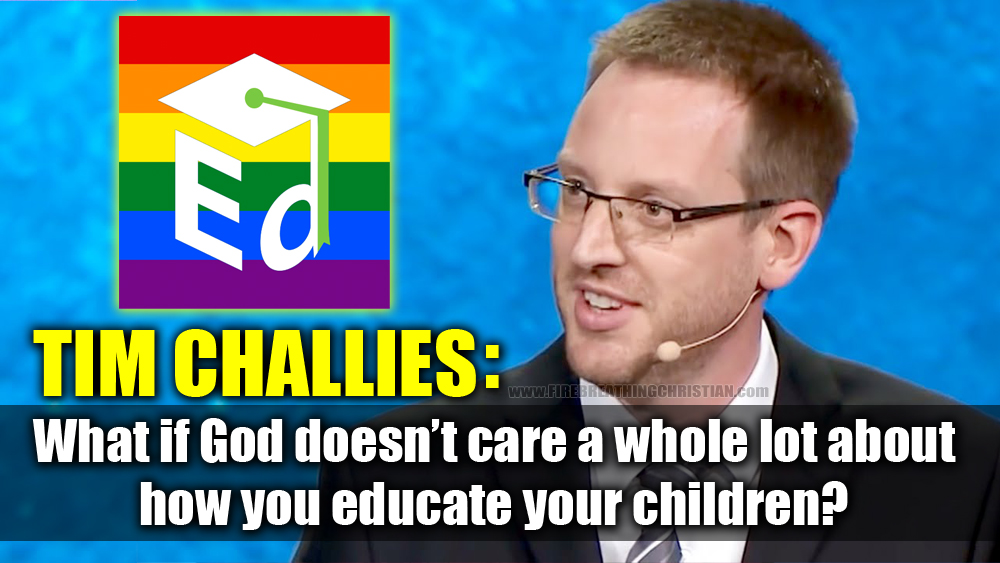
Most of us have heard some version of the saying: “There are no stupid questions, only stupid answers.” While the spirit of the phrase seems virtuous enough at a passing glance, it’s important for us to understand that, in certain contexts, there are indeed stupid questions, and that some of those questions are dangerously stupid by design. Some innocent seeming, honest sounding inquiries are, in fact, cleverly disguised devices designed to entice, hook, and pull careless or unprepared listeners down life- and worldview-threatening paths. If this all sounds a bit too dramatic to be true, please consider the following:
Now the serpent was more crafty than any other beast of the field that the Lord God had made. He said to the woman, “Did God actually say, ‘You shall not eat of any tree in the garden’?” (Genesis 3:1)
Did God actually say _______?
At a basic level this sort of question might well seem like an innocent, honest inquiry. And sometimes it is. Many times, actually. This sort of question is often asked in a spirit of honest, transparent ignorance and out of a sincere desire for accuracy and clarity of understanding. But that was not the case with the serpent in Genesis 3. The serpent’s question was designed to open a particular door to a particular path for particular reasons. It was not a question asked out of honest ignorance in pursuit of advancing a more accurate understanding in those hearing and considering the question. It was a fundamentally dishonest, insincere question rooted in denial of the most fundamental of truths and aimed at deceiving its hearer into taking a path that would lead them away from light and into darkness.
Which leads us to a recent article from Tim Challies: What If God Doesn’t Care a Whole Lot About How You Educate Your Children?
Tim Challies has a long history of attempting to defend the indefensible where the subject of children’s education is concerned, so the fact that he’s devolved to the point of offering up material like this is anything but surprising. Sad? Frustrating? Pathetic? Yeah. But not surprising.
The Challies article is brief and predictably unencumbered/unenlightened by Scripture references. I strongly encourage readers to take the time to read it through uninterrupted using the links here and above before we examine its remarkable similarities with the question asked in the opening of Genesis 3.
That said, away we go…
The article begins with Challies announcing that, “My family is coming down to our final decisions about education.” From there we get a brief rundown of the situation in some detail:
“Our oldest is already safely squared away at Boyce College and the Southern Baptist Theological seminary, where he seems to be doing really well. My middlest, who is currently in twelfth grade, has already decided that she will also head to Boyce next year. And that leaves just the youngest, who is in eighth grade. We’ve got two major decisions left to make with her—what she will do for high school and what she will do for college.
High school comes first, of course, so we are just now sorting through the options. And while to this point all of our children have gone to public schools from kindergarten all the way to graduation, that’s by no means a foregone conclusion when it comes to our youngest. As best we can, we are laying all the options before us and deciding what’s best for her and what’s best for the family. And with all those options laid out, and a big decision looming, I find myself grappling with this thought: What if God doesn’t care a whole lot about how we educate our children?”
So after a parade of interesting presuppositions that we won’t take the time to dive into here (but hope to examine in future posts), we arrive at The Question that is also the title of the article: What if God doesn’t care a whole lot about how we educate our children?”
Or, put another way: Has God actually said anything about children’s education?
Where would we go to find the answer to such an important question?
If we’re Christians, I mean.
Any guesses? (Hint: Starts with a “B” and ends with “ible”.)
Wait, did you say “Bible”?
Why yes! Good answer!
We as Christians are indeed compelled to go to the perfect, sufficient Word of God as our standard for testing and understanding every subject and area of life in His creation (1 Thessalonians 5:21). This includes the subject of children’s education.
Surely Mr. Challies understands this and will therefore quickly and frequently dive deep into the beautiful, life-giving details of the Word of God where it speaks most precisely to the subject of children’s education as the basis upon which he will make his pronouncements and give his advice (implicitly or explicitly) where the subject of children’s education is concerned, right?
No.
Not at all.
And by “at all” I mean that he will use precisely zero Scripture references to support his elaboration on the dangerously stupid question he asks in the title and body of his article. Instead of Scripture readers got more subjective, experiential “reasoning” from this man who has branded himself as “informing the reforming”:
“Over the past couple of decades, we Christians have elevated education into one of the most important elements in the successful raising of our children and, perhaps even more so, in their future salvation. We made it seem as if the decision about whether to put our children in public, Christian, or home school was going to be the determining factor in their future. Over these years I’ve read many articles and discussions about education. I’ve participated in many more. One thing I’ve never heard anyone suggest is that maybe it’s just not that big of a deal. And, honestly, I am beginning to lean that way.”
Putting children in public schools – schools that openly and explicitly reject Christ as King, dismissing His Word as the means by which we are to understand and pursue all true knowledge on every subject in His creation – is “no big deal.”
Let that soak in.
While it soaks, let’s consider a few more relevant verses from Genesis 3:
Now the serpent was more crafty than any other beast of the field that the Lord God had made.
He said to the woman, “Did God actually say, ‘You shall not eat of any tree in the garden’?” And the woman said to the serpent, “We may eat of the fruit of the trees in the garden, but God said, ‘You shall not eat of the fruit of the tree that is in the midst of the garden, neither shall you touch it, lest you die.’” But the serpent said to the woman, “You will not surely die. For God knows that when you eat of it your eyes will be opened, and you will be like God, knowing good and evil.” So when the woman saw that the tree was good for food, and that it was a delight to the eyes, and that the tree was to be desired to make one wise, she took of its fruit and ate, and she also gave some to her husband who was with her, and he ate . . . (Genesis 3:1-6 – bold emphasis added)
It’s of critical importance to understand that Genesis 3 is all about education.
It presents, by God’s grace and for our benefit, a crystal clear picture of precisely how, where, when, and why the cosmos was plunged into darkness through our rejection of God as the essential core of knowledge.
When we understand that true education is the pursuit, acquisition, and application of true knowledge rather than a man-made system of systems by which we receive certifications and accolades so that we might be pronounced “educated” whether or not we revere anything that God has said in His Word, we will understand that the serpent’s pitch in Eden was the first pitch for the very systems and approaches to education that Mr. Challies sees as “not that big of a deal”.
Public schools are built on the serpent’s pitch in Eden. Their philosophy of education centers on the notion that we can, should, and must set aside the Word of God and pursue knowledge on our own. As such, public schools are as flagrantly and fundamentally opposed to the lordship of Christ as any institution or system in human history. So when we see things like drag queens, transgenderism, and homosexuality more and more openly promoted through public schools, we should be anything but surprised. Genesis 3 based approaches like those employed by public schools were always destined to lead to the promotion of those things and the much darker places that will soon come our way (and our children’s way) due to our refusal to repent, believe, and save children’s education by subjecting it to the loving rule of King Jesus.
We should be anything but surprised that the Genesis 3 foundation of public schools places them in direct opposition to each and every passage that explicitly addresses the subject of children’s education as a primary topic for consideration.
Consider the beautiful detail of Deuteronomy 6:5-7, by which Christian parents are lovingly commanded to ensure a God-centered approach to the pursuit of knowledge for their children:
You shall love the Lord your God with all your heart and with all your soul and with all your might. And these words that I command you today shall be on your heart. You shall teach them diligently to your children, and shall talk of them when you sit in your house, and when you walk by the way, and when you lie down, and when you rise.
Is this a passage that merely addresses the waking time of children outside of the normal business hours of their public schools? Is this a command aimed at squeezing in some prayer time or corrective re-education for 15-30 minutes a day after eight hours of rank anti-Christian, Genesis 3 style indoctrination? Is the God who authored this command and equipped His people to both love and obey it also a God who thinks shipping one’s five-, six-, or seven-year-old off for day long anti-Christian indoctrination is “not that big of a deal” as long as we’re sure to say grace before dinner and maybe read a Bible story before going to bed?
What about Proverbs 1:7, which claims that the Lord is the beginning of all true knowledge, or Colossians 2:2-3, which claims that Jesus is the One in whom all treasures of wisdom and knowledge are personally hidden. Do we believe these things or not? Jesus is either the personal point of origin for all true wisdom and knowledge…or He is not.
Public schools insist that He is not, and they pursue/pervert education accordingly.
If Jesus is the personal Author, Definer, and Sustainer of every good thing in His creation, both material and immaterial, including law, logic, mathematics, aesthetics, economics, and even education, as Colossians 1:15-20 makes plain, then how can we claim to be seriously pursuing the study of any one of these subjects by insisting that students religiously ignore the Author of those subjects? What would we say of a teacher claiming to teach the works of Shakespeare while diligently refusing (and insisting all students follow suit in diligently refusing) to acknowledge, much less study, the person William Shakespeare? How absurd that would be. How much more absurd then is it to dismiss the Author, Definer, and Sustainer of law, logic, art, and beauty while claiming to properly teach or learn about law, logic, art, and beauty.
Yet that’s exactly what public schools do to our little ones every day by the tens of millions.
And what of the Great Commission given directly to the Church by Jesus as recorded in Matthew 28:18-20:
Jesus came and said to them, “All authority in heaven and on earth has been given to me. Go therefore and make disciples of all nations, baptizing them in the name of the Father and of the Son and of the Holy Spirit, teaching them to observe all that I have commanded you. And behold, I am with you always, to the end of the age.”
Shouldn’t that crystal clear mission statement from Christ to His people play a central role in our approach to education? Doesn’t that mission statement tell us a lot about the true nature and purpose of education in direct opposition to the Genesis 3 model promoted through public schools and enabled by the likes of Tim Challies?
It would be nice to see Mr. Challies interact with these or any other biblical references dealing clearly with the subject of children’s education. Instead we get wave after wave of subjective musings dripping with the residue one would expect of a man drenched in the Genesis 3 programming that defines the public schools he defends:
“I suppose we could say that the goal of parenting is to raise children who are well-skilled and well-adjusted so they can contribute to society. Then as Christian parents we have the additional goal of raising children in the discipline and instruction of the Lord with the expectation that they will come to faith in Christ.”
It’s important to notice the order and importance placed on each of the two goals identified here by Challies. The first goal fits squarely into the secular/pagan notion of education as a system by which human resources/cattle are trained to best serve the corporate/state machine. “Raising children in the discipline and instruction of the Lord” comes afterward as an “additional goal”.
It is not accidental that Challies avoids Scripture while writing such nonsense, which continues as follows:
“We acknowledge there is some mystery to both of these goals, but also acknowledge that the decisions we make along the way have a huge bearing on our parenting success or failure. It strikes me that over the past few years we elevated education to near the very top of the list of factors, up there with whether the family is committed to a local church or whether the family reads the Bible and prays together. But what if the way we educate our children should actually be 19th on the list, or even 25th? What if it should be nestled somewhere between whether our children participate in team sports and whether they memorize the order of the books of the Bible—factors that aren’t unimportant, but also factors that clearly don’t have a huge bearing on their future success and failure in life and faith.”
What if Tim Challies is asking the wrong questions while avoiding the most important ones, all while posing as a leader and teacher who is “informing the reforming”?
What if Tim Challies defines things like success, failure, knowledge, and education much more like a pagan than a Christian?
What if Tim Challies couldn’t reform himself out of a wet paper bag on the subject of children’s education because he’s been thoroughly programmed to embrace and promote an explicitly anti-Christian philosophy of education first introduced by the serpent in Eden as recorded in Genesis 3?
Hey, I’m just askin’…and these are anything but stupid questions. They may be challenging and hard edged questions, but aren’t they the sort of questions we should be able to bring to those who hold themselves up as leaders and teachers? Aren’t they the sort of questions that Christians should be asking of a man presuming to teach other Christians how to understand the vital life- and culture-shaping subjects of public schools and children’s education?
Challies’ latest attempt at legitimizing public schools closed out with a few more flurries of subjective, emotive opinions…and zero Scripture:
“One of the reasons I’ve begun to wonder this is that I have been thinking about what I’ve seen over the course of my life.
I was raised between two Christian subcultures, one of which highly valued Christian education and the other of which defaulted to public education. Meanwhile, I witnessed the early days of the homeschooling movement and saw many close family friends begin to educate their children in that way. Today my church and friend group is roughly equally divided between the three. So while my family has chosen to make use of the local public schools, we know and love (and have known and have loved) many people who have chosen the other two options.
And do you know what I’ve observed? I’ve observed that there’s little observable difference between the outcomes. Now, I need to offer a key caveat: I’m thinking particularly of families who had biblical convictions about education and followed those convictions to one of the options. They believed before the Lord that homeschooling would be best for their family so homeschooled, they believed before the Lord that Christian schooling would be best for their family so Christian schooled, or they believed before the Lord that public schooling would be best for their family so enrolled their children in public school. They did not just dump their kids into whatever option was the easiest, or the “default” for their subculture, or the one towards which they felt the most peer pressure. Rather, they operated according to biblical wisdom and conviction. They also built other structures into family life that would strengthen and support their children—church commitment and participation, family devotions, personal habits of Scripture reading and prayer, and so on.”
This would have been a great place to insert actual Scriptural arguments for public schools centering on the passages that most clearly address the subject of children’s education. Instead we get numerous appeals to how some people believed/felt, with “before the Lord” attached to the sentiment as though that makes the lack of meaningful interaction with the most relevant passages from God’s Word somehow okay. We’re just told that these people “operated according to biblical wisdom” without any actual detailed appeal to the most relevant passages of Scripture to support the assertion.
That’s classic Tim Challies.
And classic Genesis 3:1.
Challies finished out from there in typical self-referential, Scripture-free style:
“As I consider all the families I’ve known who have lived this way, and then consider how they chose to educate their children, I just can’t see that one option consistently delivers better results than the others. I don’t see that one option delivers consistently worse results than the others. I’ve seen kids raised in all these ways go on to be tremendously successful in life and become godly, reproducing Christians. I’ve seen kids raised in all these ways go on to do very poorly in life and rebelliously revoke the Christian faith. And this makes me wonder if perhaps education just isn’t as big a factor as we make it. That’s not to say it doesn’t matter, but to say that perhaps God doesn’t care which option we choose nearly as much as we think he does. At least, maybe God doesn’t care which option we choose as long as we choose on the basis of conviction and then make sure that we don’t act as if that choice alone will make or break our children.
Somehow along the way, we Christians began to treat the education of our children as if it is the most important element in the success and salvation of our kids. And if it wasn’t ever the most important, it was certainly at nearly the top of the list. But I am coming to believe it’s not nearly as simple as that. I’m coming to believe that, though education is undoubtedly very important, what’s more important is not the decision we make, but the basis on which we make it. I’m coming to believe that when we operate by wisdom and conviction, when we pray fervently and decide boldly, God is eager and willing to pour out his blessings upon us and upon our children, no matter what direction we choose.”
How many “I’ve known”, “I just can’t see”, “I don’t see”, “I’ve seen”, and “I am coming to believe” type references can you squeeze in without at least trying to shoehorn in even one single solitary detailed (or even casual) engagement with one single, solitary relevant (or even loosely connected) passage from Scripture on the subject supposedly under consideration?
How many appeals to secular standards and worldly definitions of success, failure, knowledge, and education can one Christian teacher make before he loses credibility as a Christian teacher?
How many dangerously stupid questions will we entertain? How many dangerously deceptive teachers and teachings will we endure? How many of our precious little children will we continue to feed to the beast of Genesis 3 “education” because we refuse to repent of our rejection of Christ as King in educational practice?
If you’ve benefitted from the work done at Fire Breathing Christian, we ask that you
consider financially supporting the cause. You can do this in one of three ways:
You can drop a few bucks in the tip jar by making a one-time donation through PayPal.

You can also donate using cryptocurrencies at the following locations:
- Bitcoin (BTC) at 1Mu4a75yjroSLrMZiQFLoD66JhumVvH6E1
- Ethereum (ETH) at 0x7Be44b19C1ADDC2322AFD18cad206D9DcD37dB27
- Litecoin (LTC) at LN9AMhvasWRHhw25DCxvR9XtuySceKrs87
To sign up for your own cryptocurrency wallet (and receive $10 free bitcoin with your first $100 purchase), please click here.
You can make a regular contribution by joining our monthly support team.
You can use our Amazon.com affiliate link every time you order anything at Amazon.com.
We depend on God’s provision through His faithful people.
Thank you for supporting Fire Breathing Christian!
Please check out our video channel and our news satire site.
You can also help support the Fire Breathing Christian mission by checking out these books:
Stupid Elephant Tricks – The Other Progressive Party’s War on Christianity takes a painful but much needed look at how Christ-less “conservatism” has captivated Christians and co-opted them into helping march the culture ever deeper into darkness:
_____________________________________________________
The Beginning of Knowledge: Christ as Truth in Apologetics is an approachable, easy to read introduction to Christ-centered apologetics:
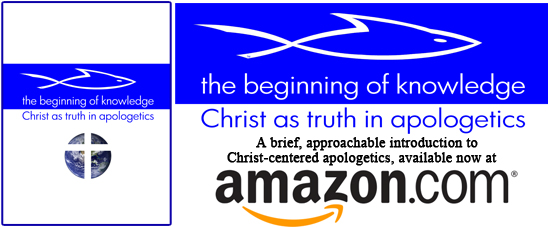 _____________________________________________________
_____________________________________________________
Apathetic Christianity: The Zombie Religion of American Churchianity explores the tragic true horror story of all-American dead religion masquerading as Christianity:
_____________________________________________________
On Education is a compilation of some of the most provocative and compelling Fire Breathing Christian articles on the subject of children’s education:
_____________________________________________________
There Is No “God-Given Right” To Worship False Gods is a compilation of some of the most provocative Fire Breathing Christian articles on the subject of America’s embrace of a satanic approach to religious liberty:
_____________________________________________________
Fire Breathing Christians – The Common Believer’s Call to Reformation, Revival, and Revolution is the book that first presented the FBC mission to apply the Gospel-fueled Great Commission in every realm of God’s creation:
_____________________________________________________
An alternate white cover version of Fire Breathing Christians is available:
_____________________________________________________
There is also an alternate black cover version of Fire Breathing Christians:
Finally, here are a few good intro/reminder links for those of you who are new to Fire Breathing Christian and curious about exactly what’s goin’ on ’round here:
What are you, some kind of [insert label here] or something?!
What’s with that shark-fishie graphic thing?
Intro to Fire: The Power and Purpose of the Common Believer
When the Bible gets hairy. (Or: Is it right for men to have long hair?)
And especially this one: Never forget that apart from God’s grace you and I are complete morons.







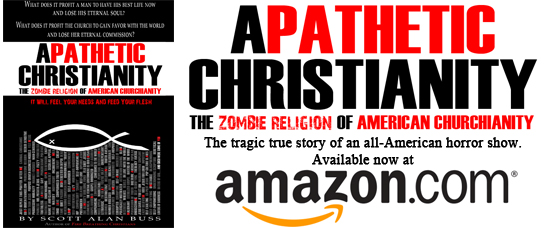
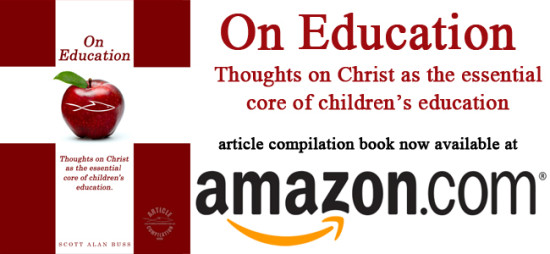
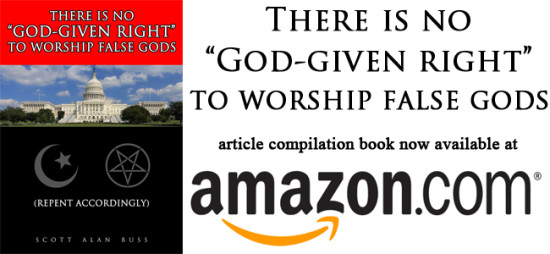
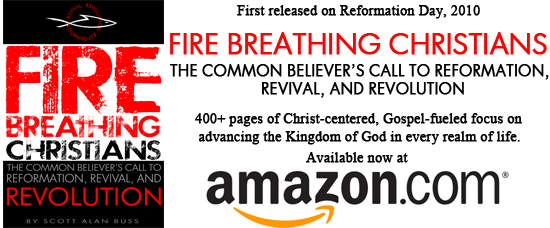


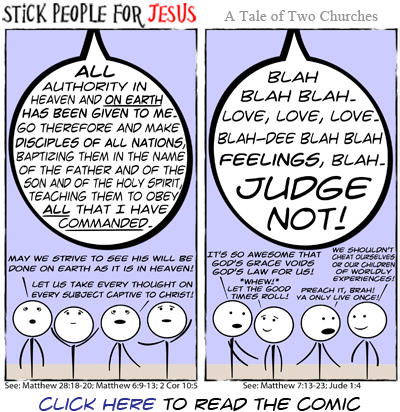
I have enjoyed Challies' articles on theology as well, but I've always thought he was off the mark when it came to education. As another commentator pointed out, his pragmatism is indeed not convincing.
One thing about Canadian culture is that public education is a sacred cow, even in the church. It's hard to critique it convincingly because it's part of our socialist mindset. We've been very carefully managed and trained this way. And so we're uncomfortable with outspoken American Christians who call things out, sometimes jarringly so.
So where does that leave us? Well, in the province of Ontario, for example, it means that even when our former Deputy Minister of Education, Ben Levin, is convicted as a pedophile and personally oversaw an aggressive sex education curriculum (full of grooming and gender identity propaganda), many churches chose to remain silent on the issue. A lot of the pushback actually came from immigrants. (Those from formerly Communist countries are perplexed by our churches' lack of engagement.) The frog in boiling water comes to mind when I think about where were are in Canada spiritually…
I’m a Challies fan. His articles and theology are pretty spot on. Do I think he could be wrong about his stance on public education being a good choice? Yes. This isn’t actually his only article on the topic. I was never convinced by his pragmatism (“my kids turned out godly so it must’ve been okay.”) His article needed a critique and I think you had some good points. But you lose a ton of credibility with me by calling him stupid and pathetic. It shows you can’t make your counter argument without name-calling or ad hominem. If I wasn’t already a Christian and a homeschooler I definitely wouldn’t be won to either by your tone here.
I referred to a stupid question as a stupid question (and explained why I thought that an important thing to do). I also referred to Challies' approach to this subject as predictably pathetic (which it is). Where did I call *him* stupid and pathetic? Where did I call *him* the names that you accuse me of calling him? Could you please support your accusation with a quote from the article as actually written?
Atheists don't send their children to an evangelical Christian Sunday School one hour per week, but Christians send their children to the atheist public schools 30 hours per week. I am a retired teacher and unequivocally proclaim that there is no hope for America as long as Christians and conservatives allow our children to be indoctrinated in the pagan (a.k.a. “public”) schools. We must rescue our children! See specifics at http://www.insectman.us/exodus-mandate-wv/index.h… I am not raising funds. My goal is to rescue children.
Excellent article!